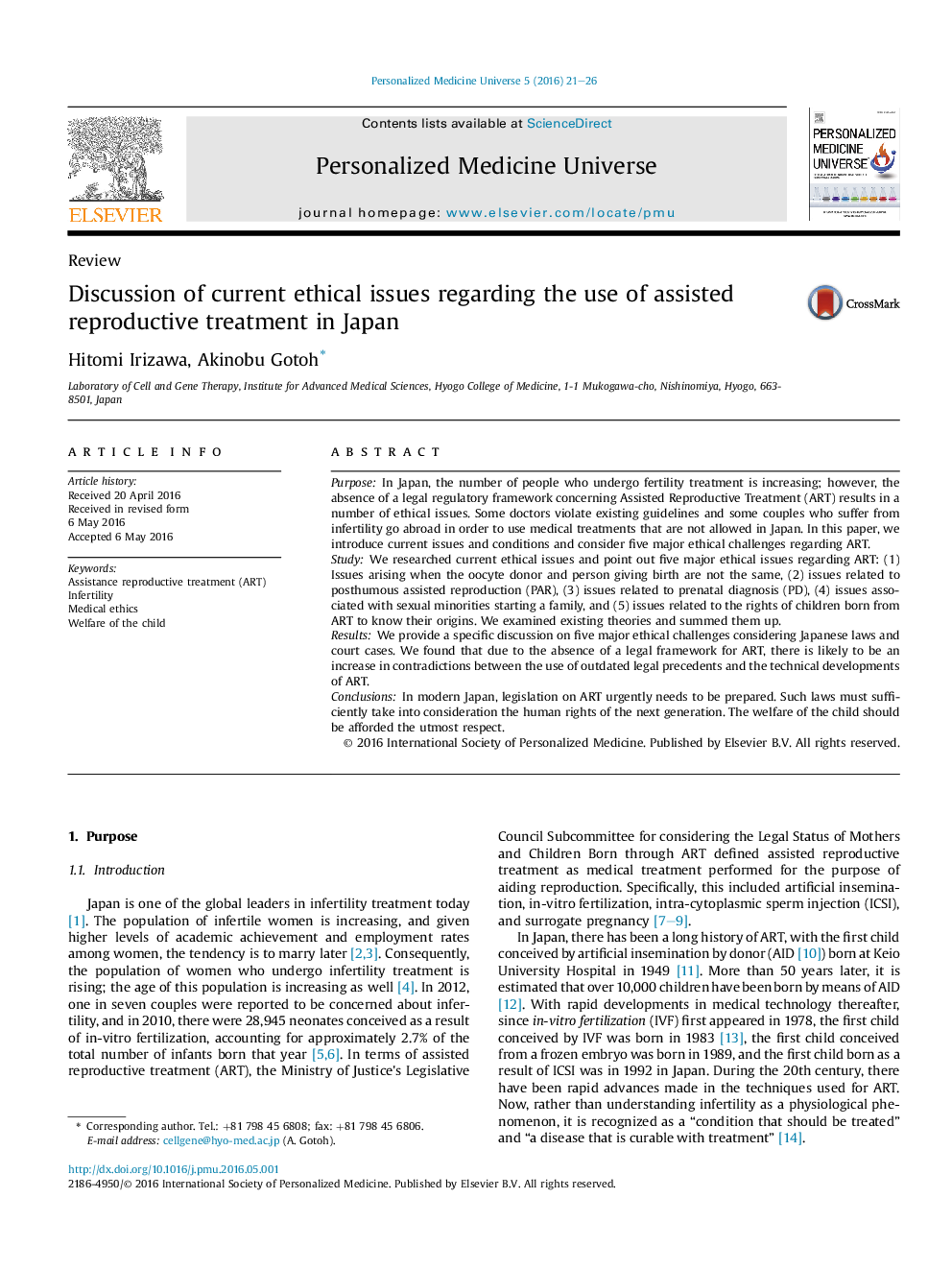| Article ID | Journal | Published Year | Pages | File Type |
|---|---|---|---|---|
| 3382607 | Personalized Medicine Universe | 2016 | 6 Pages |
PurposeIn Japan, the number of people who undergo fertility treatment is increasing; however, the absence of a legal regulatory framework concerning Assisted Reproductive Treatment (ART) results in a number of ethical issues. Some doctors violate existing guidelines and some couples who suffer from infertility go abroad in order to use medical treatments that are not allowed in Japan. In this paper, we introduce current issues and conditions and consider five major ethical challenges regarding ART.StudyWe researched current ethical issues and point out five major ethical issues regarding ART: (1) Issues arising when the oocyte donor and person giving birth are not the same, (2) issues related to posthumous assisted reproduction (PAR), (3) issues related to prenatal diagnosis (PD), (4) issues associated with sexual minorities starting a family, and (5) issues related to the rights of children born from ART to know their origins. We examined existing theories and summed them up.ResultsWe provide a specific discussion on five major ethical challenges considering Japanese laws and court cases. We found that due to the absence of a legal framework for ART, there is likely to be an increase in contradictions between the use of outdated legal precedents and the technical developments of ART.ConclusionsIn modern Japan, legislation on ART urgently needs to be prepared. Such laws must sufficiently take into consideration the human rights of the next generation. The welfare of the child should be afforded the utmost respect.
